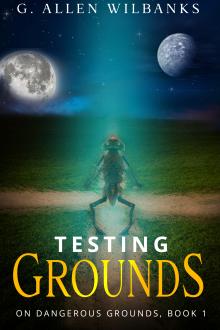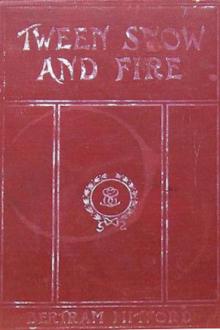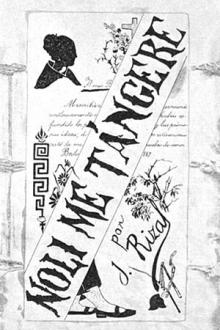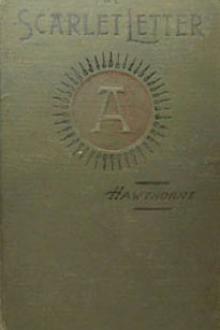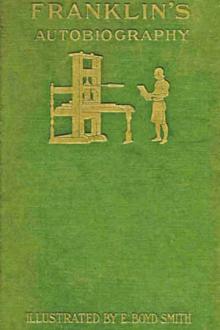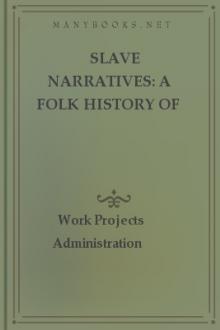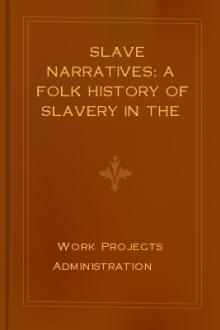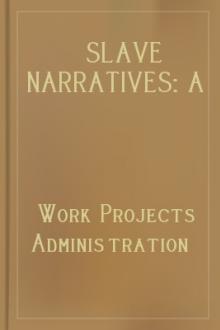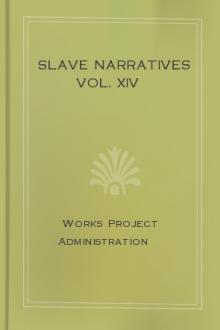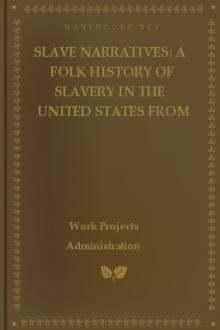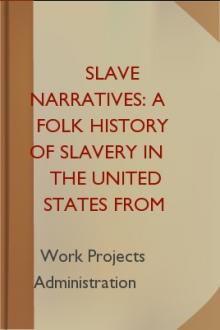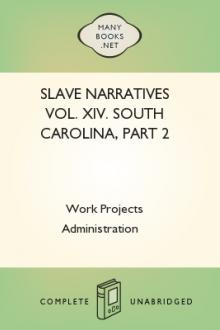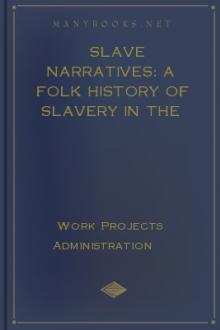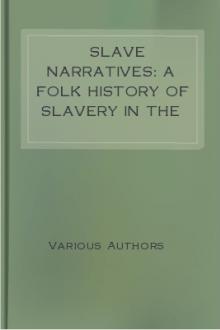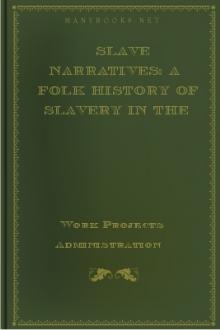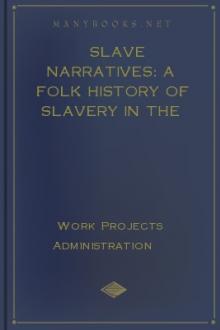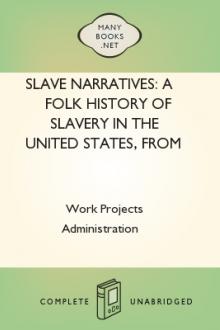Slave Narratives, Oklahoma
Slave Narratives, Oklahoma
A Folk History of Slavery in the United States From Interviews with Former Slaves
Book Excerpt
places. One time when father was cutting down a tree it fell on him and after that he was only strong enough to rub down the horses and do light work around the yard. He got to be a good horse trainer and long time after slavery he helped to train horses for the Free Fairs around the country, and I suppose the first money he ever earned was made that way.
Lots of the slave owners didn't want their slaves to learn reading and writing, but the Perrymans didn't care; they even helped the younger slaves with that stuff. Mother said her master didn't care much what the slaves do; he was so lazy he didn't care for nothing.
They tell me about the war times, and that's all I remember of it. Before the War is over some of the Perryman slaves and some from the McIntosh place fix up to run away from their masters.
My father and my uncle, Jacob Perryman, was some of the fixers. Some of the Creek Indians had already lost a few slaves who slip off to the North, and they take what was left down into Tex
FREE EBOOKS AND DEALS
(view all)Popular books in History, Biography, African-American Studies, Government Publication
Readers reviews
5.0
LoginSign up
This is a very interesting book. This is a series of interviews of former slaves living in Oklahoma in the late 1930's. Most of them were in their 80's or 90's and were children during the Civil War, but many of them had vivid memories of slavery and also recalled the stories that had been handed down to them from their parents and grandparents. Although the stories are fascinating, most of them tend to downplay the harsh reality of slavery somewhat. I think this may be due to the fact that the narratives were collected in the 1930's, when the Ku Klux Klan was still quite active in the south, which may have helped to inhibit some of the interviewees from revealing everything they knew or felt. But as long as you read these narratives with that in mind, they are quite fascinating and cover many many aspects of life for slaves before, during, and after the Civil War, and I think it's wonderful that someone had the presence of mind to collect these wonderful historical accounts of the people who were actually involved.
- Upvote (0)
- Downvote (0)

 Free Download
Free Download







